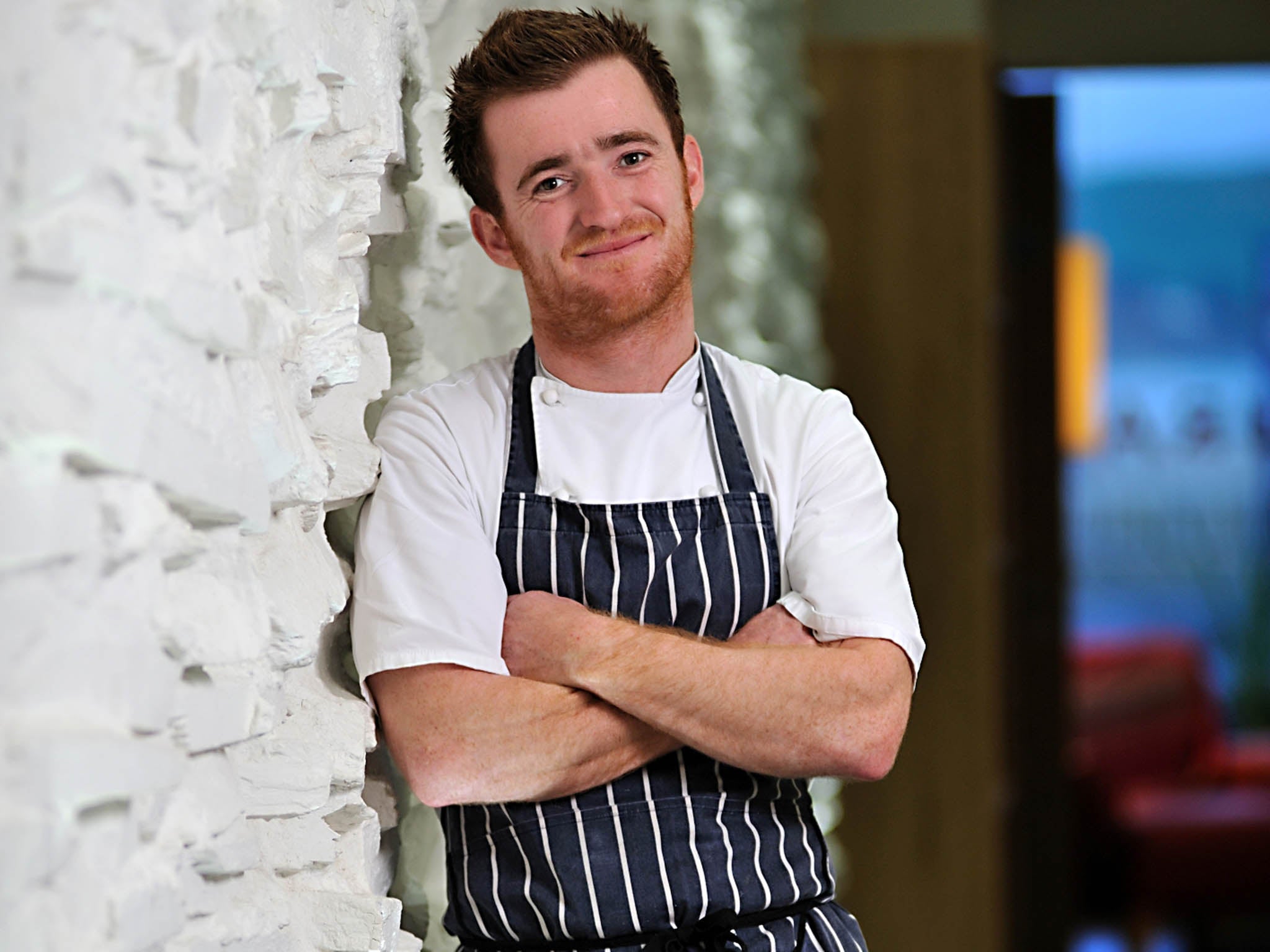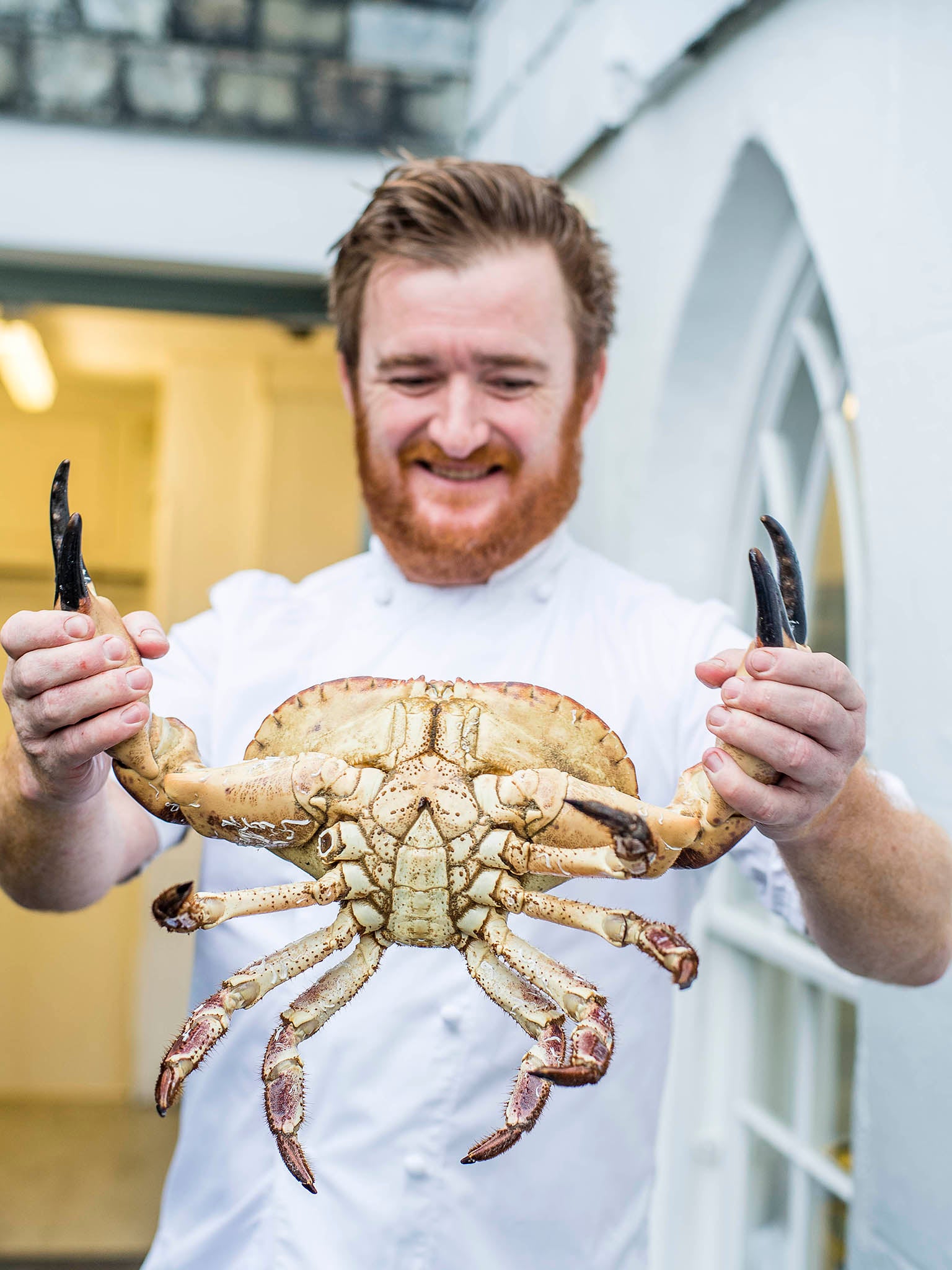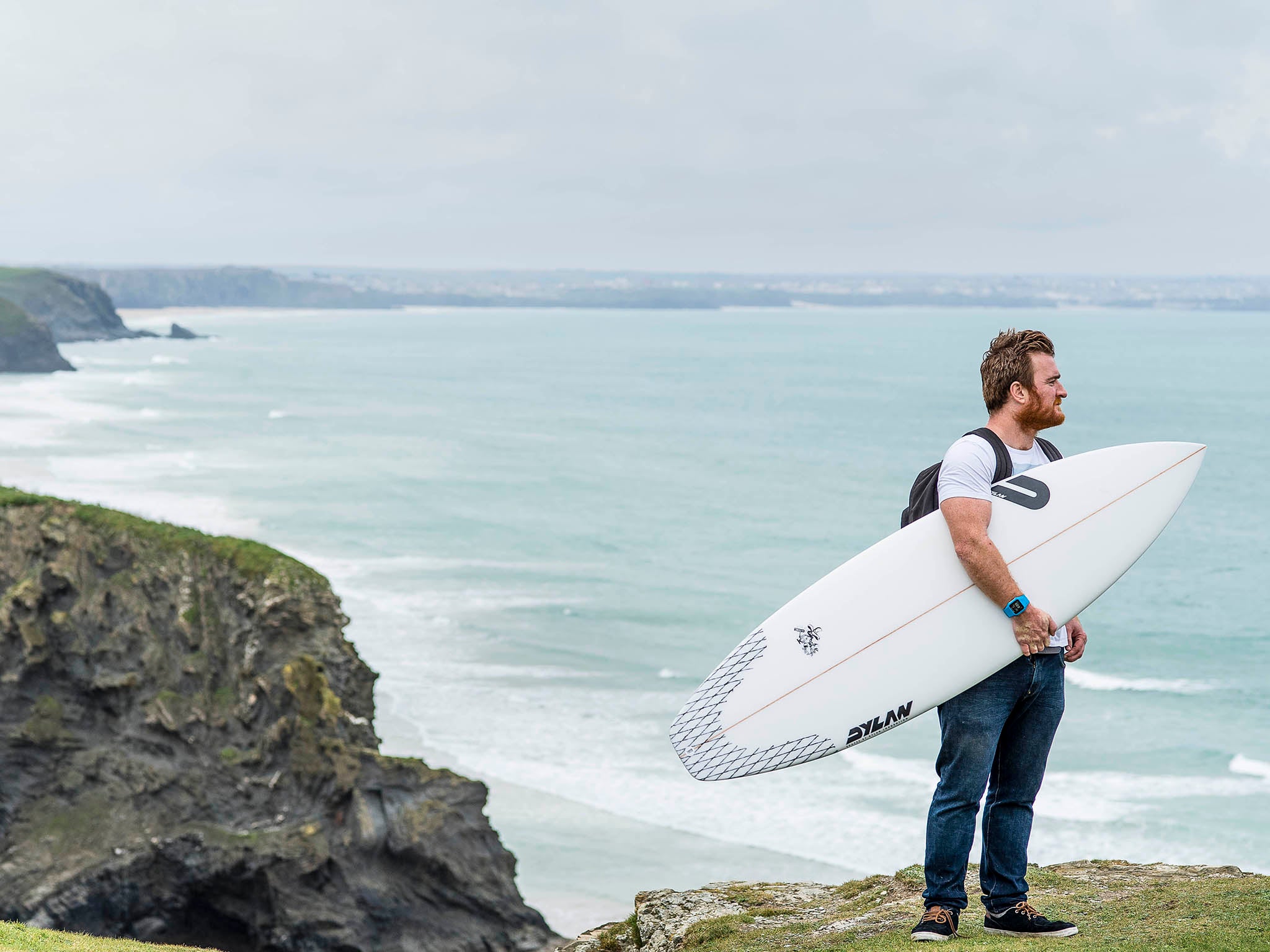Jack Stein on Michelin stars, high street chains and Cornwall
The son of one of Britain's most loved chefs, Jack Stein studied psychology in case cheffing wasn't for him but the lure of Cornwall was too much to resist. Emma Henderson gets the lowdown on the inspiration behind his new book

Your support helps us to tell the story
From reproductive rights to climate change to Big Tech, The Independent is on the ground when the story is developing. Whether it's investigating the financials of Elon Musk's pro-Trump PAC or producing our latest documentary, 'The A Word', which shines a light on the American women fighting for reproductive rights, we know how important it is to parse out the facts from the messaging.
At such a critical moment in US history, we need reporters on the ground. Your donation allows us to keep sending journalists to speak to both sides of the story.
The Independent is trusted by Americans across the entire political spectrum. And unlike many other quality news outlets, we choose not to lock Americans out of our reporting and analysis with paywalls. We believe quality journalism should be available to everyone, paid for by those who can afford it.
Your support makes all the difference.You went to Cardiff University and studied psychology, so how – and why – did you make the move into the food world?
The restaurant has been ever present throughout my life, it’s a massive part of our family. I worked there as a kitchen porter and a waiter, then mum and dad told me to go and do a degree to see if I wanted to try anything else. So I went to uni, did work experience in the city and realised it wasn’t for me so came back….the rest is history!
Your first cookbook came out last week, how would you describe it?
It’s a cookery memoir of my travels and eating around the world.
How do you expect people to react to you using soy sauce, fish sauce and star anise in your roast gravy?
And marmite! A lot of chefs use world condiments in their cooking because they give an English taste bud something new. Things like soy sauce and fish sauce are often used in Asian food, but to use them in something that is so traditionally British seems to have caused a stir! But I promise it is delicious, those ingredients add a lovely savouriness – everyone should try it.
What’s your favourite type of food from your own travels and time working abroad?
I think Sri Lankan. The fish curries, the coconut based dishes, the salads – it’s all lovely. I tend to like food from the coasts because I spend a lot of time serving it. There is a monkfish dish in the book which is one of my favourites – for me, it’s the best fish to use in a curry.
How important do you think food is to culture?
I think you can travel with food as your touchstone to experience another culture and learn almost more than you would if you studied the architecture or history of the place because food is so current. Staring at a temple is lovely, but eating street food with people from the culture is different. You can communicate a lot through food - everyone eats!
What was it like growing up with such a well-known chef as a father and how did you find your own cooking style?
Mum and Dad worked hard but they would close the restaurant for two months and take us travelling and eating around the world, which was awesome, although as a teenager by the end of the second month I really wanted them to go back to work! I think my cooking style has evolved from a distillation of all the passion my dad has for British produce but also my own passion for food and culture. He’s more of an archivist of food, whereas this book is more about taking the ideas and flavours and mixing them up.

What’s your earliest memory of seafood?
Tasting oysters in Brittany. My brother is a couple of years older than me and was goading me saying I wouldn’t like oysters, which of course meant I had to try it. I love eating shellfish because it tastes like the sea, which reminds me of home.
Rick Stein’s was the first good restaurant to open in Padstow, but now others have followed such as Paul Ainsworth and Nathan Outlaw’s restaurants down the road in Port Isaac who both have Michelin stars, do you think it matters that you don’t have one?
It’s great for everyone. They are both quality restaurants and Nathan and Paul are two of the nicest people you will ever meet. Nathan worked with us for years and Paul’s head chef did too – it’s great to have top quality restaurants and hotels in and around Padstow because it’s good for the area. It shows it’s a culinary hotspot!
When you were growing up, who cooked at home?
My mum cooked most often, dad was at work a lot but Sunday was his day off so he used to do the big meal that day.
How have you seen British food change?
I think since the early 2000s we’ve become much more interested in making sure that really great artesian food producers are patronised and farmers markets have thrived.
Did you ever imagine taking another career path?
I did a stint of work experience in the City in insurance brokerage. They were going to offer me a job but Cornwall was just too hard to leave behind!
This has been a testing year for many high-street chain restaurants, what do you think has been the downfall of so many?
Our industry has seen a really, really huge boom from lots of food TV, celebrity chefs, high quality restaurants opening and it’s the same with most things: there are periods of difficulty and periods of plenty.

It’s cyclical, and when there is a tough patch the best thing to do is to look inwards – making sure training is as good as possible, treating staff really well, investing in team facilities.
Do you think supermarkets will ever put local butchers and artisan makers out of business?
That’s a difficult question. Supermarkets tend to look at food trends and they try and emulate them, buy I don’t think they’ll put the artisans and independents out of business. I do believe its better that supermarkets get closer to the same quality you get from a fishmongers, or a butcher, and for supermarkets to increase those standards is a good thing.
How do you ensure you reduce your food waste across all your kitchens?
A very good kitchen doesn’t really waste anything. There are so many ways to use and reuse things – making stocks out of fruit and veg, using bones for soup. We never want to throw food away.
As your partner is Italian, how has that influenced your cooking style?
She is a very good cook. Italians have an amazing food culture and history and naturally know great ingredients and flavour pairings. I’ve definitely been eating more Italian food since we met. She is from Sicily which is different to the Italian food I know – it’s a lot lighter.
As you’ve just become a father, will you encourage your child to do something other than become a chef?
I think food will be important to him given the family he has been born into! If he wanted to be a chef, great, but that’s a way off… at the moment his menu is mostly milk!
Jack Steins’ ‘World on a Plate’ is out now (Absolute Press, £26); Find our three recipes from his book here
Join our commenting forum
Join thought-provoking conversations, follow other Independent readers and see their replies
Comments